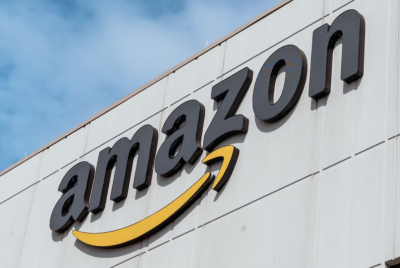From Wall Street To Silicon Valley: Bosses Are Silencing Staff And Firing Activists In Explosive New Trend
Bosses across finance and tech accused of cracking down on employee activism as workplace tensions rise.

In recent months, prominent US firms, ranging from Silicon Valley tech giants to Wall Street banks, have tightened their stance on workplace activism, prompting increased scrutiny of public dissent and employee-led campaigns, with some adopting new, strict policies and others resorting to outright dismissals.
The shift has accelerated as companies reassess how far employees can push for social and political change within their organisations. At the same time, executives argue that activism is becoming disruptive to operations and reputations.
What's Driving the Shift
Once welcomed as drivers of diversity and change, executives now view internal activism as disruptive to both operations and brand image, especially in a politically charged and unstable economic environment. Companies perceive greater risk from headlines and shareholder impact than from disengaged staff.
According to new reporting, senior leaders are taking a harder line against staff who publicly challenge company decisions, raise political issues, or use corporate platforms to mobilise colleagues.
Employees at investment banks, tech firms, and media companies have been reprimanded or dismissed after staging walkouts, posting internal petitions, or making public criticisms of leadership. The trend has drawn comparisons with the culture wars, as businesses attempt to limit reputational damage in a polarised environment.
Targets of the Crackdown
Microsoft reportedly fired staff members who protested its Israeli contracts. Google and Tesla have silenced employees via dismissals and internal censorship. Even JPMorgan banned political posts after staff criticised return-to-office mandates.
Wall Street banks have also led the charge, with several high-profile firms enforcing strict internal guidelines about political speech in the workplace. In Silicon Valley, tech companies have also introduced new codes of conduct to prohibit employees from using corporate channels for activism.
Executives say they aim to preserve cohesion and focus. Yet critics, including labour organisers and workplace rights groups, warn that the clampdown risks silencing legitimate concerns over issues such as equality, ethics, and sustainability.
Employees Caught Between Fear and Advocacy
Facing economic uncertainty and reports of 'MAGA-aligned' pressure under Donald Trump, workers increasingly avoid internal dissent. Some are retreating into self-censorship, while others take discourse outside corporate platforms, using unions or public campaigns instead.
Why Now Such Measures
The rise of workplace activism in the past decade, amplified by movements such as #MeToo, Black Lives Matter, and climate protests, initially pushed many firms to make public commitments. However, executives now fear that internal activism can harm share prices, generate negative headlines, and alienate customers.
One HR consultant told reporters that companies are 'drawing clearer boundaries' between professional responsibilities and personal advocacy. The shift also reflects broader economic pressures, with management teams focused on cost-cutting and stability amid uncertainty.
How Are Staff Responding
For many employees, new restrictions have fostered a culture of fear and self-censorship.
A recent MyPerfectResume poll of 1,000 US workers found that 74% adjust their communication at work to avoid conflict, and 68% hold back their opinions, especially regarding political topics. 'On the surface... it might look like we're having more open conversations at work – but beneath that is a culture of fear and self-silencing,' said Career Expert Jasmine Escalera.
Labour experts warn that the conflict between management control and employee voice is unlikely to fade soon.
One workplace researcher observed, 'Activism has not disappeared. It is shifting into new forms, sometimes underground, sometimes outside company walls.'
While this specific quote isn't directly documented in media reports, it accurately reflects prevailing academic findings on organisational dissent and self-censorship. For instance, research shows that employees often withhold feedback or concerns a phenomenon known as organizational silence when they perceive speaking up as risky.
What Happens Next
While no major lawsuits have yet been reported, labour experts caution that firings tied to activism could spark future legal challenges over workplace rights and free expression.
For now, the message from corporate leaders is clear: activism may come at a cost. From Wall Street boardrooms to Silicon Valley campuses, employees are being told to focus on work, not politics.
The broader risk is a corporate culture that actively discourages questioning, even when such dissent is rooted in ethics, equity, or governance.
© Copyright IBTimes 2025. All rights reserved.





















